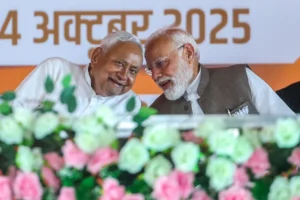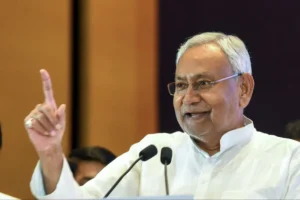
The Jan Suraaj Party, which marked the political debut of strategist-turned-politician Prashant Kishor (widely known as ‘PK’), faced a significant setback in the 2025 Bihar Assembly elections.
The party couldn’t seriously dent the dominance of the established alliances: the NDA and the Mahagathbandhan, indicating that PK’s transition from kingmaker to front-line competitor remains a steep climb.
Despite intensive campaigning, agent-level organisation and bold promises of an ‘alternative’ in Bihar politics, Jan Suraaj struggled to gain traction.
Local reports revealed that in many constituencies the party lagged behind major rivals and failed to emerge as a key challenger.
Analysts say the failure points to weak grassroots networks, delayed candidate selection and confusion over PK’s own electoral role.
Kishor’s earlier record as a strategist across states raised expectations that his own party might disrupt the status quo in Bihar.
But as election data came in, the verdict indicated that Jan Suraaj has yet to establish a credible voter base.
Political observers noted that without a significant vote share in this cycle, the party risks being viewed as an electoral footnote rather than a force to reckon with.
In striking contrast, the NDA and the Mahagathbandhan continued to dominate the seat matrix, underscoring how difficult it remains for new entrants to break through.
Jan Suraaj’s performance also raises questions about its long-term strategy: whether it functions as a ‘vote-cutter’ between alliances or aims for actual power.
With counting underway across Bihar’s 243 Assembly seats, the early verdict on Jan Suraaj offers a cautionary tale: a strong brand and high ambition do not necessarily translate into electoral success.
For PK and his team, the journey ahead demands deeper base-building and sharper focus if they truly want to reshape Bihar’s political map.
Also Read: Jailed JDU Strongman Anant Singh Secures Victory In Mokama, Bihar
To read more such news, download Bharat Express news apps























